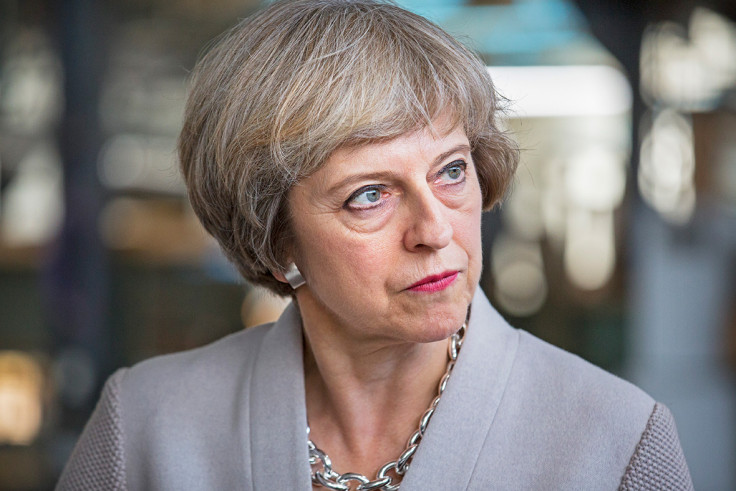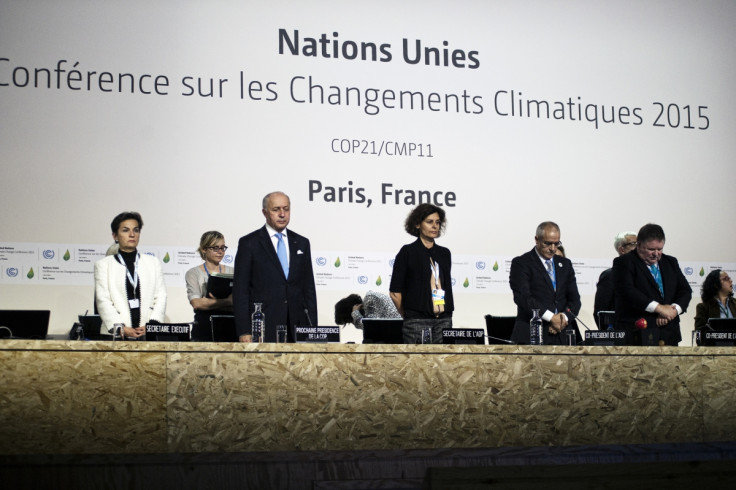Is Britain open for business on climate change at the G20 Summit?
Theresa May faces renewed calls for Britain to ratify the COP21 accord.

Pressure is growing on the UK to commit to the Paris climate agreement, which it signed in December 2015, following the ratification of the deal by both China and the US.
Alongside trade, Britain's international role post-Brexit and the Hinkley Point power station, the agreement is expected to be a major talking point for Theresa May at the G20 summit in the Chinese city of Hangzhou.
The prime minister has reportedly decided to make her intentions clear, and declare Britain "consistent and dependable" and "wanting a smooth and orderly departure" from the European Union. She is also being encouraged to send a clear message about Britain's position.
"You need to know who is in charge, who you are talking to, where the seat of power is in relation to an investment of this kind [referring to Hinkley Point] so that you have direct communication and there is no fogginess about where the power lies in the relationship," Dame Pauline Neville-Jones, former Conservative security minister told the Today programme.
However, the announcement that China and the US, who together produce 40% of the world's greenhouse gas emissions, have moved the Paris agreement one step closer to becoming a legally binding treaty has placed new pressure on the UK to endorse the deal.
The agreement will come into force once it is ratified by at least 55 countries, which between them produce 55% of global carbon emissions. A spokesman for the prime minister told BBC News that the government would ratify as soon as possible, but gave no date.
Robin Willoughby, Oxfam's head of food and climate change, told the Independent that the UK must ratify the deal as soon as possible if it wanted to be seen as a global leader.
"If the UK is to continue to justify its reputation as a global leader on climate change, the government must ratify the Paris Agreement as soon as possible. This deal can offer a lifeline for the world's poorest people who are already feeling the full force of our changing climate," he said.

Camilla Toulmin, a senior fellow at the International Institute for Environment and Development, said: "There's no reason now for the UK not to ratify the agreement as soon as possible.
"Doing so would help cement our reputation for leadership on climate change and send a strong signal to countries globally that we're looking to build stronger links with in a post-Brexit world that we're working with them towards a common goal."
A Greenpeace petition calling on May to ratify the deal has gathered more than 100,000 signatures.
Greenpeace UK's chief scientist Dr Doug Parr said that "it's the UK's turn to push it over the finish line".
"Britain showed its climate leadership with the Climate Change Act and the crucial role it played in the Paris negotiations. It's now time to show that leadership once again," Dr Parr said.
"Every extra tonne of CO2 released into the atmosphere makes it harder to reverse the impacts of climate change already unfolding all around us, leaving a greater burden to future generations.
"There are no excuses left for the UK government to delay the ratification of the Paris deal, least of all Brexit. If anything, the UK has never been more in need to demonstrate it's a reliable partner on its international commitments."
© Copyright IBTimes 2025. All rights reserved.




















